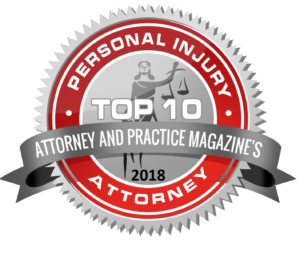Facing a deposition in a criminal traffic accident case can feel overwhelming, especially if you have never been through the process before. A deposition is an important step in legal proceedings, giving both sides a chance to gather information that will later be used in court. During a deposition, you will be asked questions about the accident, your actions, and your knowledge of the events that led to the incident. This is a time when you will be required to answer truthfully and clearly since your statements can impact the direction of the case. Being prepared will not only make you feel more confident but will also help you respond in a way that supports your legal position.
In this guide, we will explore what you can expect at a deposition, what types of questions you might be asked, and how to approach answering them thoughtfully. A deposition can be an intense experience, but with preparation, you can feel more at ease and know what to expect. By understanding each part of the process, you will be able to focus on giving accurate answers that reflect your recollection of the events. This preparation is a vital part of making sure you are ready for this important day. At, NovaLegalGroup, P.C. , we are here to guide you through the legal process and help you navigate the complexities of your case.

Understanding the Purpose of a Deposition
A deposition is essentially a formal interview conducted under oath, where both parties’ lawyers have a chance to ask questions. In a criminal traffic accident case, the goal of a deposition is to gather information that can later be used as evidence. Lawyers on both sides will use this information to understand what happened during the accident and determine if there was any wrongdoing or negligence. Everything that is said during a deposition is recorded, so it can be reviewed later. Because these answers are given under oath, it is crucial to be honest. Anything untruthful could damage your case or harm your credibility in court.
The lawyer representing the other side will likely ask questions that challenge your perspective or try to uncover details you may not remember. This is done not only to see how you respond but also to test the strength of your answers. Each question in a deposition serves a purpose, even if it seems simple or repetitive. Staying calm, focused, and prepared is the best way to respond effectively, allowing you to present your side of the story accurately and clearly.
Types of Questions to Expect
During your deposition, you may be asked a wide range of questions. Some will focus on factual details, like the time of day the accident happened or what the weather was like. Other questions might delve into what you were doing at the time of the accident or how you responded afterward. Many questions will be specific to the events, but some might seem unrelated. These questions are often intended to establish context or test your reliability as a witness.
For example, you might be asked if you have a prior history of traffic violations or if you were using a cell phone at the time of the accident. Questions about your mental state, such as whether you were tired, in a hurry, or under stress, could also come up. These details help paint a fuller picture of the situation and provide information that might influence the court’s decision. Remember, answering each question carefully is important because every response will contribute to the final presentation of facts.
Tips for Answering Questions Clearly
Answering questions clearly and concisely is one of the most valuable skills in a deposition. Since your words are being recorded, it is important to keep your answers straightforward and to the point. Take a moment before answering each question to make sure you fully understand it. If you are unsure, ask for clarification. When you do answer, focus only on the question asked, without adding unnecessary details or opinions. Stick to what you know and remember, rather than guessing or speculating.
For example, if asked about the speed of your vehicle, respond only with your best estimate rather than a detailed explanation unless further clarification is requested. Avoiding emotional responses or lengthy explanations can help keep the deposition focused on factual information. This will not only make the process easier but will also help you maintain a composed and professional demeanor throughout.
Handling Difficult or Tricky Questions
Some questions in a deposition may feel challenging or uncomfortable, especially if they are designed to uncover inconsistencies in your story. Lawyers sometimes use a series of questions to see if you give the same response in different ways. These questions are not meant to trick you but rather to test the reliability of your recollection. It is perfectly fine to take your time to think before answering, ensuring that your response is honest and accurate.
If a question is difficult or seems designed to put you in a bad light, remember to stay calm. Resist the urge to become defensive or argumentative. Instead, provide a truthful answer based on your memory of the events. If you do not remember a specific detail, it is okay to say so. Trying to force an answer when you are unsure can lead to confusion or unintended contradictions. When answering questions about complicated topics, give yourself time to think before responding, and remain consistent in your approach.
What to Bring and How to Present Yourself
Although a deposition is less formal than a courtroom appearance, it is still a legal proceeding, and it is important to dress professionally. Wear neat and modest clothing to convey respect for the process and a sense of responsibility. Being well-groomed and composed can also help you feel more prepared and confident, which will come through in your responses.
Bringing any necessary documents or notes that your lawyer has asked you to review can also be helpful. These materials will not be needed for every question, but they can serve as a reference if specific details are asked about the accident. Your lawyer may advise you on what documents, if any, are appropriate to bring. The focus should remain on being prepared to speak truthfully about the facts, rather than relying on extensive notes or documentation.
Choosing a Personal Injury Attorney Personal Injury Case TimelineRelated Videos
Working with Your Lawyer to Prepare
Your lawyer is there to guide you through the deposition process and will help you understand what types of questions to expect. Working closely with your lawyer before the deposition allows you to review important details and address any concerns. Practicing with your lawyer can help you become comfortable with the kinds of questions that may be asked and how to answer them appropriately. Your lawyer may ask practice questions that mimic what you will face during the actual deposition, allowing you to refine your responses and build confidence.
Being open with your lawyer about any uncertainties or gaps in your memory can also be beneficial. By discussing these concerns beforehand, you and your lawyer can work together to prepare responses that are truthful yet effective. This collaboration will ensure that you feel supported and ready for the deposition, which can make a significant difference in your overall experience.
Staying Calm and Focused
A deposition can be a long process, and it is natural to feel tired or overwhelmed as the questioning continues. Taking deep breaths and maintaining a calm demeanor will help you stay focused, even during lengthy or difficult parts of the deposition. Remembering that this is simply one step in the legal process can help reduce anxiety. If you feel flustered or lose focus, take a moment to gather your thoughts before continuing.
Staying calm is especially important if the other lawyer appears to challenge your responses or asks the same question in different ways. This approach is sometimes used to see if you change your answer or become defensive. Staying composed and answering consistently will demonstrate that you are confident in your recollection. Reminding yourself that honesty is your best approach can help you remain steady throughout the deposition.
The Role of Honesty and Accuracy
Throughout the deposition, accuracy is essential. Because depositions are used as evidence, every word you say has potential consequences for your case. Telling the truth is crucial, even if some details may not seem favorable. Your honesty and transparency will show that you are a credible witness, which can strengthen your position. Avoiding exaggerations, assumptions, or speculations is a good practice, as sticking to what you remember will make your answers more reliable.
In cases where you are unsure, it is better to admit that you do not remember rather than guessing. A deposition is not a test where you need to have all the answers; it is simply an opportunity to provide your perspective based on your memory and knowledge of the event. Clear, straightforward answers will give the lawyers and court the most accurate picture of the events.
Facing a deposition in a criminal traffic accident case is a serious task that can be managed with thorough preparation and a calm approach. By understanding the purpose of a deposition, being familiar with the types of questions you might face, and working closely with your lawyer, you can handle the process with confidence. Honesty and clarity in your responses will present you as a credible witness, which can significantly influence the outcome of your case. Taking time to prepare and knowing what to expect can turn an intimidating experience into a manageable one.
If you are facing a deposition in a criminal traffic accident case and want dedicated legal guidance, NovaLegalGroup, P.C. is here to support you every step of the way. Our team is ready to provide the advice and representation you need to feel prepared and confident. Contact us to schedule a consultation and learn how we can help protect your rights and navigate the legal process with you.










